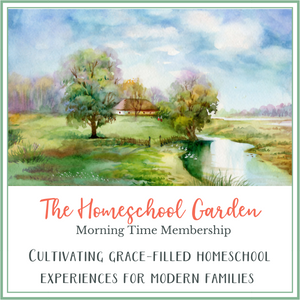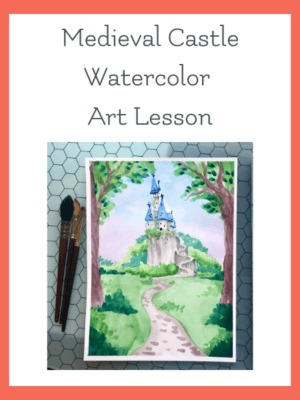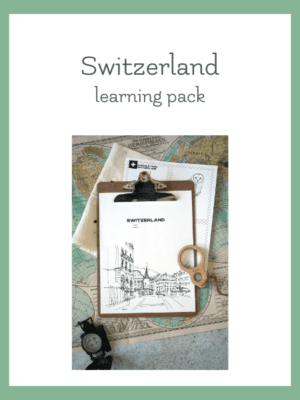
Today’s episode is brought to you by Audible. Get your free Audible Trial here.
Listen here:
Good afternoon everybody. This is Lisa Nehring with True North Homeschool Academy. And I just want to thank Lara of Cultivating Grace for asking me and inviting me to be on her program. I just wanted to tell you a bit about True North; we offer live online and self-paced classes for 6th through 12th graders. We do the grading for you as a bonus. We also offer testing, and struggling learners program for K through 12th graders. A awesome community, check out our Facebook page, Help Homeschooling High School. You don’t have to be a homeschooler or a homeschool parent to join up.
I wanted to talk to you today about wholesome humor in your homeschool. First of all, why? Why even bother with humor? Well, education in life could be really a serious business, and laughter and humor could do several things for us. First of all, it can relieve tension and stress. And I don’t know about you, but sometimes my kids didn’t always get the lessons that we were trying to teach. Math seemed to bring a lot of tears in our family for certain seasons, and if you can joke about it and just make some of those tense moments more humorous and less tense by laughing you can just keep moving on instead of getting stuck in that tense place. It relieves tension and stress for all of us, including our kids.
Secondly, it teaches us not to take ourselves so seriously. If we can learn to laugh at ourselves and teach our kids to laugh at themselves, they realize that they’re not really the center of the universe and that it’s a bigger world than they might have thought. It builds community and camaraderie. So if you have a common jokes, and common things to laugh about in your family you automatically have a sense of camaraderie with the people there. My kids and I can just start telling the beginning of a joke and start laughing because we know the punchline already. Because some of the jokes we’ve been telling for a very long time.
Humor gives us shared memories and builds vocabulary. We went to see Tim Hawkins a couple years ago and laughed and laughed, and we’re still telling some of his jokes. But even if it wasn’t a comedian that we’d seen, shared jokes, shared humor, it gives you a sense of being part of something that is important. And it also teaches us figures of speech and tropes. So this is a twofer you get from telling jokes and humor, is that a lot of really good humor uses puns, metaphors, paradoxes, all those good upper-level writing tropes and stylistic techniques that you’re not going to learn about till you get into 10th grade and on. If you teach your kids really good humor they’re going to know about them anyway.
Laughter is also universal, and it transcends culture, time, and language. I’m sure some of you guys have seen those YouTube videos where it’s a young couple, and maybe they’re Asian or Indian, and they’re just making their little baby giggle. And the baby probably isn’t even talking yet, but for some reason he’s just laughing and laughing. And that little baby’s laughing, and then all of a sudden we’re laughing. Because laughter is just a universal language, and it doesn’t even have to have speech attached to it, it’s just going to connect, we’re going to connect with it on some level and want to join in.
Laughter helps us transcend the difficult, the painful, and the sad, and just the loneliness of life. And as we get more involved in a digital age … I read something last week for an article I was writing, that 12-year-olds to 21-year-olds spend seven and a half hours a day on digital devices. That’s more than they spend with people, either in school or with their families. And as we get more involved in a digital age there are kids and families who are losing that sense of connection. But if we can laugh together we connect, we reconnect. And in the digital age people are getting lonelier, and laughter helps us connect with each other on a personal relational level.
So how do we teach our kids humor, and what it is? A lot of kids when they first start learning language they try to make puns and jokes and play on words, and sometimes it really falls flat. And it’s not that we should just tell our kids why you’re not funny, you should teach them how to be funny, and we should give them prompts and helps. We’ve always bought joke and humor books, and good, clean fun books for our kids when they were younger. And that kind of turned into really loving certain comics.
We love Charles Schultz and have several Charlie Brown and Peanuts books. You can buy them by the decade, and they’re not inexpensive, but we save them for Christmas presents. Bill Waterson, I think he is the poster comic of the homeschool world. Calvin and Hobbes is a beloved favorite, not just of ours, but of many other people’s. We’ve bought tons of them at garage sales. But lots of good humor in there. Kids can really relates to Calvin and Hobbes because it’s at their level, it’s where they live, but there’s a lot of really sophisticated humor in there, and sophisticated wordplay and ideas and concepts. We also like Garfield. He’s kind of a goofball, but I think everybody can relate to the fat cat.
And then I would also really like to suggest some good comedians. We love Tim Hawkins, and actually got to see him live in a concert a couple of years ago. He was so funny, we knew most of his routines but we laughed so hard we left there with … Our stomachs were sore and our faces hurt, because we just laughed the whole time. He’s a brilliant comedian, and G rated. John Crist, The Ribbon Dance, if you haven’t seen it on YouTube, you need to look it up. And as far as Tim Hawkins goes, go check out the girl versus boy skit that he does, it’s just very funny. I’d also like to suggest Tim Conway and Harvey Korman from the old Carol Burnett Show. “The Dentist” is just classic, and so, so funny. Abbott and Costello’s “Who’s on First?” is a not to be missed, and my son just sent it to us from basic this summer, and we’re still laughing about it.
And then if your kids haven’t discovered Studio C yet … Although they’re changing formats, but they still have a lot of good stuff on YouTube and their channel out of Provo, Utah. Really good, clean sketch comedy. And our writing club at True North, our kids loved Studio C so much that we’re actually teaching comedic sketch writing in our writing club because of the kids’ interest in Studio C. And how to write a good sketch comedy. So this is a whole new field that I never even knew existed until this year, because of my students’ interest. But check out Studio C, a lot of good, clean fun. And then if your kids are really interested, have them try to write some good comedy themselves.
But I would really encourage you to keep comedy alive and well, and laughter, in your home because it really can take the edge off of the serious business of homeschooling and educating your kids with intentional vision. And I applaud you for doing so. Have a great day everybody. And come join us on Help Homeschooling High School, we’re always laughing in that group, and we’d love for you to come jump in and join the good discussions and good, clean fun there. Have a great day everybody!
About Lisa

Lisa Nehring lives, works and laughs on the great plains in the far north, a true cosmic joke as she is a naturally gifted beach lover. She is privileged to own and teach at True North Homeschool Academy https://








Leave a Reply